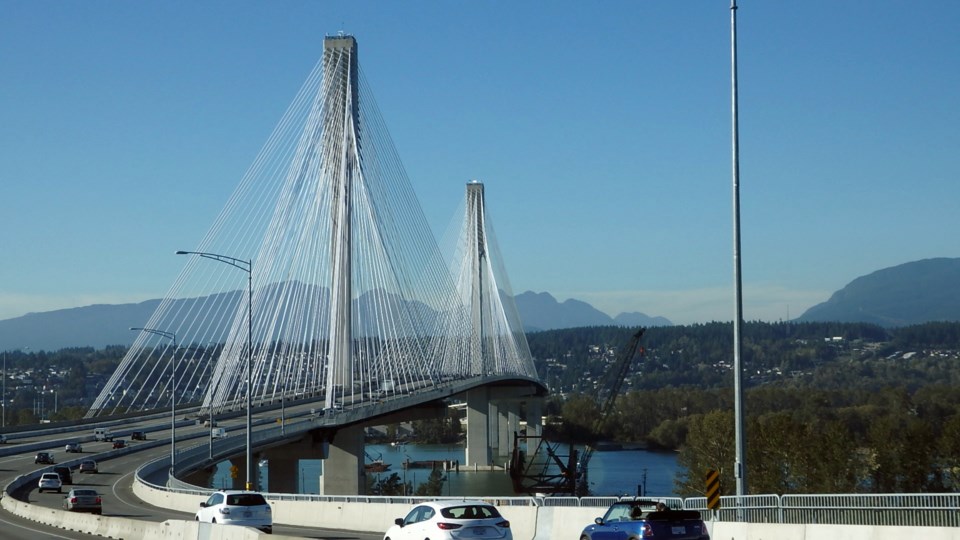While the NDP government’s move to remove tolls from the Port Mann and Golden Ears bridges is being applauded by many, others are a little more critical.
UBC Sauder School of Business’s Werner Antweiler, a professor of economics, called the move “very foolish.”
“It’s clear right now that the Port Mann Bridge is underutilized,” he said, adding that it’s likely because the tolls are too high, pushing many drivers to take other routes such as the Patullo and Alex Fraser bridges.
“Many people have been traveling out of their way to avoid tolls because they simply cannot afford them,” Premier John Horgan said Friday in making the announcement. “Getting rid of tolls will shorten commute times and clear up other routes, so people can spend less time stuck in traffic and more time with their families.”
Antweiler said that lowering the tolls, or moving to a system of road pricing, would have been a better option.
According to the province, the Port Mann Bridge opened in 2012 at a cost of $3.3 billion. Since then, operating costs have outpaced toll revenue and the total debt has increased to $3.6 billion. Similarly, the Golden Ears Bridge cost just over $900 million to build, and its total debt is now at $1.1 billion.
Removing the tolls will cost the province an additional $132 million for the remainder of the fiscal year — $94 million for the Port Mann and $38 million for the Golden Ears, including an estimated $12 million to wind down tolling operations.
The government expects it will cost an additional $135 million a year in lost revenue on the Port Mann Bridge. That number includes $25 million in annual savings by not having to collect the tolls.
Those costs will now be covered by taxpayers.
B.C. Green Party leader Andrew Weaver raised concerns last week that the additional debt risks raising the interest on all debt, which could ultimately prevent the government from being able to invest more in social programs.
Antweiler said the provincial debt is currently relatively low, so the additional debt won’t affect the province’s credit rating right away. The real impact, he said, won’t be seen until the government releases its budget, which is expected in early September.
“Tolls are an excellent policy tool to manage transport demand,” Weaver said Friday. “Transport demand management reduced pollution and emissions, alleviates congestion and helps pay for costly infrastructure.”
Antweiler said another way to manage that demand is to institute a system of mobility pricing — something that the Mayors Council and TransLink are currently investigating with an independent commission that was established this past spring. Mobility pricing could include a number of options, such as fees for using certain roads at certain times, tolls, or levy fees based on the distance traveled.
With the NDP’s move last week, re-introducing any tolls could prove challenging, Antweiler said.
“Once you close a door, it’s hard to re-open it,” he said.



